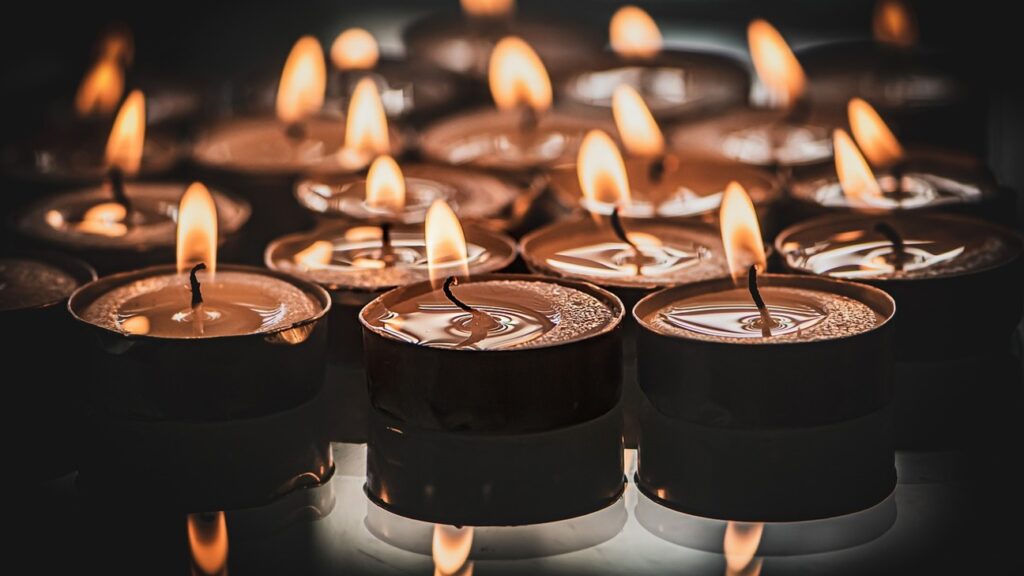Evidence Based
This article relies on solid scientific evidence, authored by experts, and thoroughly fact-checked by specialists.
Our team of licensed nutritionists and dietitians strives to maintain objectivity, impartiality, and honesty. We aim to present a fair representation of both sides of the argument.
Scientific references are included throughout this article. The numbers in parentheses (1, 2, 3) are clickable links to peer-reviewed scientific papers. These sources further support the information provided.

In today’s fast-paced world, anxiety has become an increasingly common concern for people of all ages. Whether it’s due to the demands of work, family responsibilities, or the constant barrage of information from our digital devices, anxiety can creep into our lives and disrupt our sense of well-being. The good news is that there are effective strategies to calm anxiety and regain a sense of peace and serenity. In this comprehensive guide, we’ll explore seven tips and tricks to help you manage anxiety and find tranquility in your daily life.
Understanding Anxiety
Before we dive into the strategies to calm anxiety, it’s essential to have a basic understanding of what anxiety is and how it manifests. Anxiety is a natural response to stress, but when it becomes chronic or overwhelming, it can have a significant impact on our mental and physical health. Common symptoms of anxiety include:
- Excessive worrying: Constantly thinking about potential problems or worst-case scenarios.
- Physical symptoms: Such as muscle tension, restlessness, and increased heart rate.
- Irritability: Feeling on edge and easily agitated.
- Difficulty concentrating: Struggling to focus on tasks due to racing thoughts.
- Avoidance behaviors: Steering clear of situations or activities that trigger anxiety.
Now, let’s explore the seven effective strategies to calm anxiety and regain control over your life.
1. Mindfulness Meditation
Mindfulness meditation is a powerful technique for managing anxiety. It involves paying full attention to the present moment without judgment. Regular practice of mindfulness meditation can help you become more aware of your thoughts and feelings, allowing you to respond to them in a more balanced way.
- How to Start: Find a quiet place, sit or lie down comfortably, and focus on your breath. When your mind wanders, gently bring your attention back to your breath. Start with just a few minutes a day and gradually increase the duration.
Summary
Mindfulness meditation is a potent tool for managing anxiety by promoting present-moment awareness and balanced responses to thoughts and feelings.
2. Deep Breathing Exercises
Deep breathing exercises are a quick and effective way to reduce anxiety in the moment. When you’re feeling anxious, your breathing becomes shallow and rapid. Deep breathing helps slow your heart rate and relax your muscles.
- How to Do It: Inhale deeply through your nose for a count of four, hold your breath for a count of four, and then exhale slowly through your mouth for a count of six. Repeat this several times until you feel more relaxed.
3. Regular Exercise
Physical activity is a natural anxiety reliever. When you exercise, your body releases endorphins, which are chemicals that improve mood and reduce stress.
A study conducted in 2022 revealed that individuals who adhered to a 12-week exercise program experienced a notable decrease in symptoms associated with depression and anxiety when compared to those who did not engage in regular exercise (1
PubMed Central
Highly respected database from the National Institutes of Health
Go to source ).
- Start Small: You don’t need to run a marathon; even a short daily walk can make a significant difference in your anxiety levels.
4. Healthy Diet and Nutrition
The food you eat can have a profound impact on your mental health. A balanced diet rich in nutrients can help stabilize your mood and reduce anxiety.
- Foods to Include: Incorporate whole grains, fruits, vegetables, lean proteins, and foods rich in omega-3 fatty acids (such as salmon and walnuts) into your diet.
Summary
Maintaining a healthy diet and nutrition is vital in alleviating anxiety, with whole grains, fruits, vegetables, lean proteins, and omega-3-rich foods playing a crucial role in stabilizing mood.
5. Limit Caffeine and Alcohol
Caffeine and alcohol can exacerbate anxiety symptoms. While they may provide temporary relief, they can lead to increased anxiety in the long run. Consider reducing your intake or avoiding them altogether.
Scientific research indicates a correlation between alcohol use and anxiety, as they frequently co-occur. These connections may involve shared brain structures and pathways (2
PubMed Central
Highly respected database from the National Institutes of Health
Go to source ).
6. Quality Sleep
A good night’s sleep is essential for managing anxiety. Poor sleep can exacerbate anxiety symptoms, so it’s crucial to prioritize healthy sleep habits.
Multiple studies have demonstrated that anxiety can interfere with obtaining sufficient sleep, while inadequate sleep can exacerbate anxiety symptoms. Scientists propose a potential connection between anxiety and sleep problems, which may involve alterations in brain activity (3
PubMed Central
Highly respected database from the National Institutes of Health
Go to source ).
- Sleep Hygiene Tips: Create a bedtime routine, limit screen time before bed, and maintain a consistent sleep schedule.
7. Seek Professional Help
If anxiety is significantly impacting your life, don’t hesitate to seek help from a mental health professional. Therapy, such as cognitive-behavioral therapy (CBT), can provide you with effective tools and strategies for managing anxiety.
- Medication: In some cases, medication prescribed by a healthcare provider may be necessary to manage severe anxiety symptoms.
Conclusion
Anxiety is a common and treatable condition. By incorporating these seven strategies into your daily life, you can take proactive steps to manage and reduce anxiety. Remember that finding the right combination of techniques may take time, and it’s essential to be patient and compassionate with yourself. With persistence and support, you can achieve a greater sense of calm and serenity in your life. Don’t let anxiety hold you back from living your best life—take action today to find the peace you deserve.
How we reviewed this article:
HISTORY
Our experts continually monitor the health and wellness space, and we update our articles when new information becomes available.




